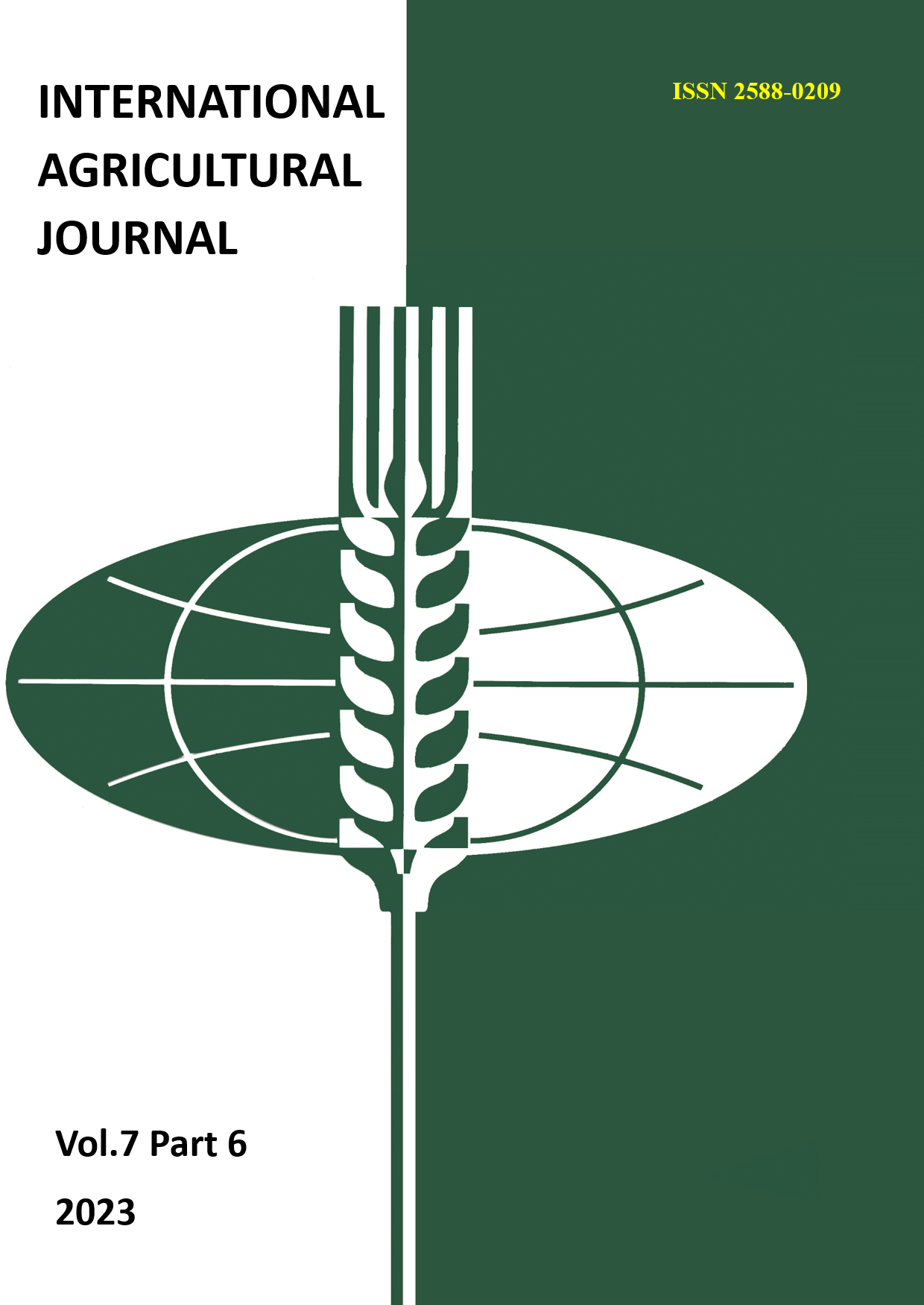CONTEMPORARY YOUTH ENTREPRENEURSHIP IN AFRICA’S AGRICULTURE
Main Article Content
Abstract
The development of medicine and the reduction of child mortality against the backdrop of high birth rates has made Africa a continent where the bulk of the population are young people of working age. Unemployment rates in African countries are high, and unemployed youth are particularly susceptible to becoming involved in criminal activities. Moreover, there exists a serious food security problem that threatens the health and lives of millions of Africans.
Africa's agricultural sector today cannot meet the continent's food needs: the sector's growth rate is lower than the population growth rate.
Moreover, African agriculture is on an extensive development path. Instead of introducing new technologies and increasing productivity, the growth of the sector is achieved by expanding the area under cultivation. This happens due to the high average age of farmers who prefer to use stable but outdated technologies and do not want to master the achievements of scientific and technological progress.
One of the ways to solve the identified problems – to eradicate unemployment among the younger generation, prevent hunger, and overcome the technological backwardness of the agricultural sector – is to attract young people into agriculture. The sector remains an unpopular employment field among young people, but their involvement in agriculture is beginning to gain momentum.
The paper examines some of the technology-based agribusinesses that are currently spreading on the African continent and that have managed to attract young entrepreneurs. They involve minimal investment and are designed to produce quick results.
These include the cultivation of basic annual food crops that yield several harvests per year, the breeding of quickly maturing animals (birds, sheep, snails, fish, etc.), the production of organic fertilizers, the development of food products from agricultural raw materials and their sale, and trade in tools and various materials for farming.
Article Details
References
2. Macenko, I.B. Ot CzRT K CzUR: iskorenenie nishhety` v Afrike yuzhnee Saxary` [From MDGs TO SDGs: ending poverty in sub-Saharan Africa] // Aziya i Afrika segodnya. – 2018. – № 2 (727). – S. 52– 58.
3. Morozenskaya E.V (2021). Perspektivy razvitiya nauchno-tekhnicheskogo potentsiala Afriki [Prospects for the development of the scientific and technological potential of Africa] // Asia and Africa Today, no 5, pp. S. 66-70. DOI: 10.31857/S032150750015024-8
4. Afrika v global'nykh migratsionnykh potokakh: istoriya i sovremennost' [Africa in global migration flows: past and present]. – Moscow, Institute for African Studies S, 2022.
5. Matveeva N.F. (2020) Problemy agrarnogo sektora v neftedobyvayushchikh stranakh Afriki: Ehkvatorial'naya Gvineya [Problems of the agricultural sector in the oil-producing countries of Africa: Equatorial Guinea] // Journal of the Institute for African studies, no 1 (50), pp. 38-47. DOI: 10.31132/2412-5717-2020-50-1-38-47
6. Gavrilova N.G., Denisova T.S. (2019) Nigeria’s Food Security Challenge and the Response of International Organizations // Asia and Africa Today, no 7, pp. 54–58. DOI 10.31857/С032150750005569-7.
7. Ehkonomika Afriki v ehpokhu global'noi tekhnologicheskoi revolyutsii [African economy in the era of global technological revolution] – Moscow, Institute for African Studies, 2019.
8. Novikova, Z.S. Tsifrovaya transformatsiya ehkonomiki kak vektor razvitiya Afriki [Digital transformation of the economy as a vector of African development]// Economics of Africa in the Era of the Global Technological Revolution: Collection of Articles. – M.: Institute for African Studies, 2019. P. 78–90.
9. Agrarnye problemy i novye modeli ehkonomicheskogo razvitiya v stranakh Vostoka [Agrarian problems and new models of economic development in the countries of the East] – Moscow, Institute of Oriental Studies of the Russian.

